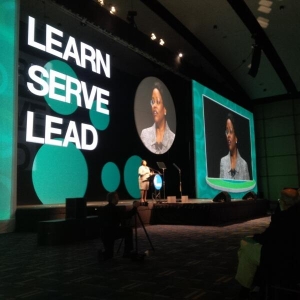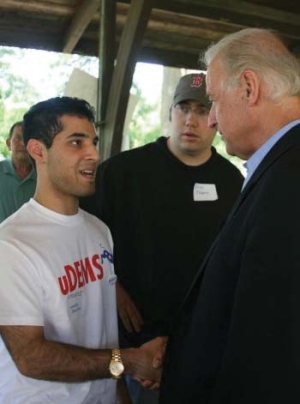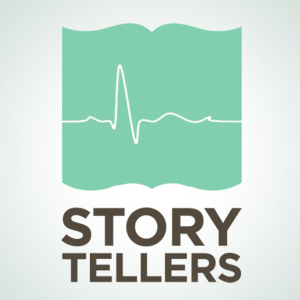 Ajay Major, MD, MBA (12 Posts)
Ajay Major, MD, MBA (12 Posts)Founder and Editor-in-Chief Emeritus
University of Colorado School of Medicine
My name is Ajay Major, and I am currently an assistant professor of medicine at the University of Colorado School of Medicine specializing in lymphoma and myeloma, and a physician-publisher in the medical education and narrative medicine spaces.
My journey into publishing began in April 2012 when I founded in-Training, the online peer-reviewed publication for medical students, and served as editor-in-chief for four years. Since that time, we have founded several additional online publications for the medical education community, including in-House, The Palate, Mosaic in Medicine, and Intervene Upstream.
To support these publications, we founded Pager Publications, Inc., a 501c3 non-profit literary corporation that curates and supports peer-edited publications for the medical education community, in 2014. Since our inception, Pager Publications, Inc. has published six print books, with all proceeds used to support our constituent publications.
In her address entitled “Leading the Dance of Change” at the 2013 AAMC Annual Meeting, Dr. Valerie Williams characterized the American health care system as a dance, a fitting metaphor for the complex interplay of fluidity and form that are necessary for the practice of medicine. Dance, like health care, involves “a true and equal partnership between the acts of leading and following,” said Williams, requiring balance, learning and the ability to improvise. Regrettably, the …
It is no secret the US health care model is unsustainable. Costs continue to skyrocket, emergency rooms have become the primary care source for many of the uninsured, and physicians spend 22% of their time on nonclinical paperwork. Amidst the numerous problems and proposed causes, the unpredictable and high cost of health care is an undeniable symptom of a sick health care system. The price of procedures, visits, medications, and hospital stays has become a …
On October 4 – 5, 2013, the American Medical Association hosted the “Accelerating Change in Medical Education Conference” in Chicago, IL., bringing together leaders in the realm of medical education for discussions aimed at “closing the gap between current physician training and the needs of our evolving health care system.” In attendance were two in-Training editors, Emily Lu and Jarna Shah, who reported on the conference and offer their in-depth medical student perspectives on the …
On October 4 – 5, 2013, the American Medical Association hosted the “Accelerating Change in Medical Education Conference” in Chicago, IL., bringing together leaders in the realm of medical education for discussions aimed at “closing the gap between current physician training and the needs of our evolving health care system.” In attendance were two in-Training editors, Emily Lu and Jarna Shah, who reported on the conference and offer their in-depth medical student perspectives on the …
On October 4 – 5, 2013, the American Medical Association hosted the “Accelerating Change in Medical Education Conference” in Chicago, IL., bringing together leaders in the realm of medical education for discussions aimed at “closing the gap between current physician training and the needs of our evolving health care system.” In attendance were two in-Training editors, Emily Lu and Jarna Shah, who reported on the conference and offer their in-depth medical student perspectives on the …
On October 4 – 5, 2013, the American Medical Association hosted the “Accelerating Change in Medical Education Conference” in Chicago, IL., bringing together leaders in the realm of medical education for discussions aimed at “closing the gap between current physician training and the needs of our evolving health care system.” In attendance were two in-Training editors, Emily Lu and Jarna Shah, who reported on the conference and offer their in-depth medical student perspectives on the …
It has been reported by media countless times. Everyone has been talking about it, most people know of its existence, and many have come up with a plethora of remedies—sometimes misleading and unfounded—for it. And yet, not only is it still plaguing the United States, it has transformed into an epidemic. That’s right, “it” is obesity. A longitudinal study done by the University of Washington measured several parameters, including physical activity, obesity, hypertension and longevity …
Atul Nakhasi has been called the most sought-after young man in Iowa—2007 Person of the Year, Campus Kingmaker, you name it—for his game-changing political organizing as president of University of Iowa Democrats during the 2008 presidential election. Atul now oversees 50,000 U.S. medical students as chair of the American Medical Association Medical Student Section (AMA-MSS). I vividly remember the email Atul sent to me during his campaign for chair almost a year ago. He casually …
Our threshold to admit a patient into the hospital is high. They must be sick—really sick!—and therefore once they are admitted, worked-up and treated, their prognosis is inevitably better. Ultimately, that is the point of our health care system. Enter sick, leave healthy. A recent patient encounter made me question this basic premise. Here was a 56-year-old white female with a past medical history of chronic obstructive pulmonary disease (COPD) presenting with increased shortness of …
Approximately 3-5% of the population in the United States identifies as homosexual or as having sex with a person of the same gender at some point in their life. That is approximately eight to 12 million individuals. In comparison, the population of Boston, MA is around four million people. Los Angeles, CA has a population of approximately 10 million. These statistics suggest that engaging in sex with a partner of the same gender or being transgender is not uncommon.
Editor’s note: This article was originally published here by contributing writer Emily Lu on her blog, Medicine for Change. Like every other health policy nerd out there, I’ve been following the debate over the Oregon Medicaid experiment results about as closely as most Chicagoans followed the Bulls game. For those not up to speed, here’s a quick replay: Due to financial constraints, Oregon was only able to expand Medicaid enrollment by 10,000 in 2008, though many more people were …
Dear medical students: our fates are being decided by Congress on March 1 — we don’t have time to dilly-dally, so here is a high-yield summary of this piece. Congress may cut graduate medical education (GME) funding on March 1. (GME funds residency programs). Congress is considering cuts as high as 50%, which translates into thousands of residency programs and thousands of residency slots on the chopping block. That’s your future on the line. I’ll let the …
 Meena Thatikunta (4 Posts)
Meena Thatikunta (4 Posts)Contributing Writer Emeritus
Northeast Ohio Medical University
Meena Thatikunta is a Class of 2015 medical student at Northeast Ohio Medical University in the 6-year accelerated BS/MD program. Meena enjoys writing about health policy, advocacy, and humanism in medicine--with a bit of humor. Pending her survival of medical school, she hopes to pursue neurosurgery or orthopedic surgery and found a media company which delivers health policy and advocacy content through innovative means. Meena's media experience includes television host, radio co-host, producer, writer, and web designer.
Meena is a recipient of the AMA Foundation's Leadership Award. She served as a Health Policy Fellow with the Ohio State Medical Association (OSMA) and currently serves as Vice Chair of the AMA Medical Student Section Committee on Legislation and Advocacy and Medical Student Representative to the OSMA's Focused Task Force on State Legislation.









